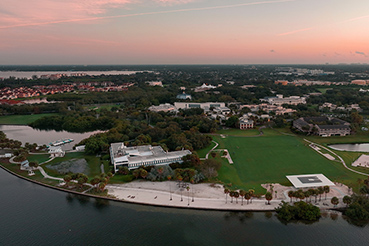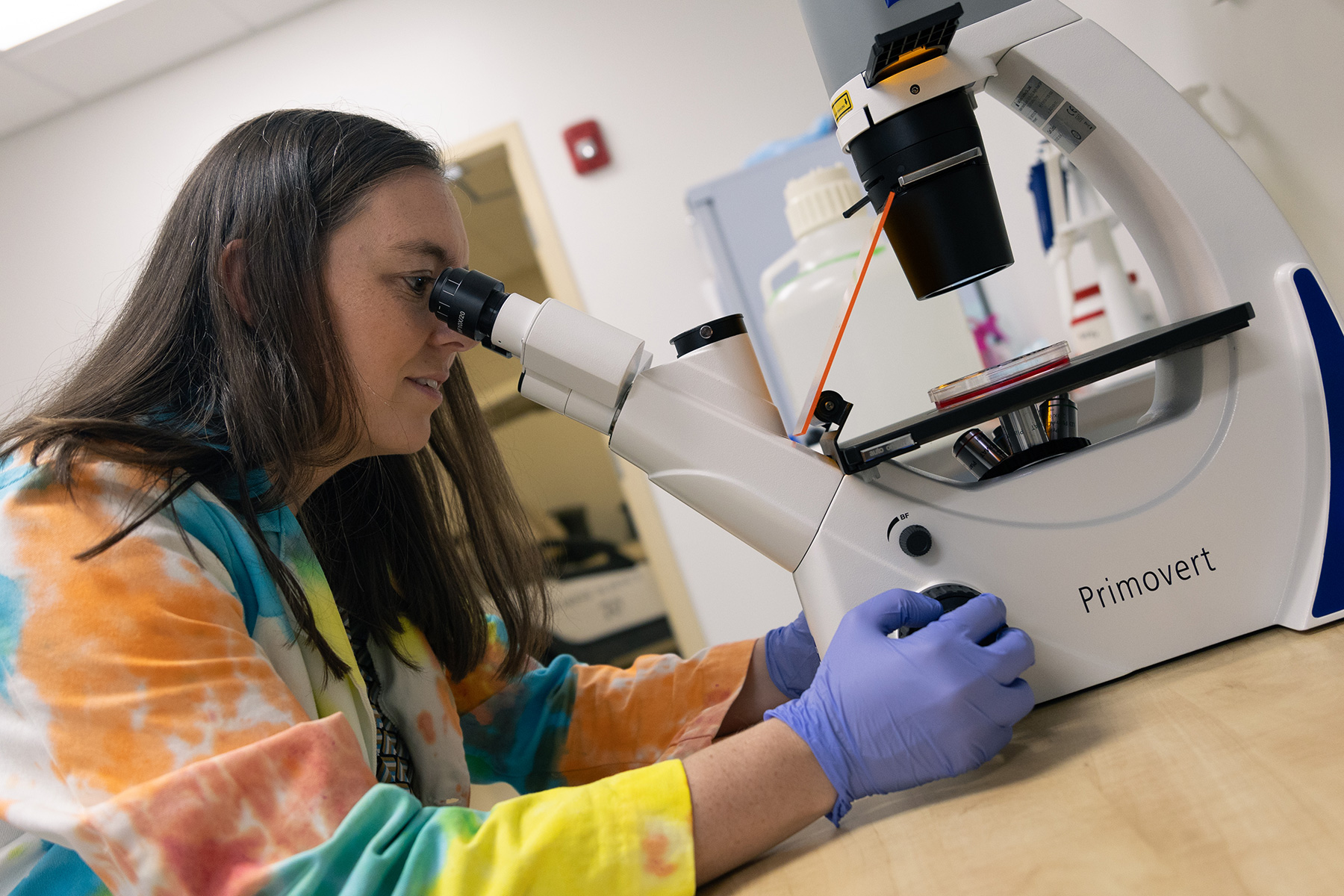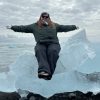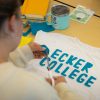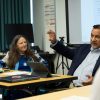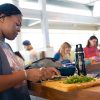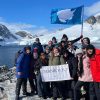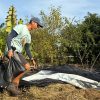Eckerd College Associate Professor of Biology Denise B. Flaherty, Ph.D., was over the moon as the good news kept rolling in.
Of the 644 students in the U.S. admitted and matched in Genetic Counseling Master of Science programs across the nation, three of them were her students. Ekaterina Damskey ’22, Alyssa Bernstein ’23 and senior Madi McCune all matched with institutions in April and will begin their journeys this fall.
“I’m so proud of these strong women in science and their goal to make a difference,” Flaherty says. “I’m also thankful to be part of a Genetics and Molecular Biology course at Eckerd College that helped to lay a foundation for these students. Eckerd’s biology discipline has seven faculty who contribute to sections of this course, and at any given time, one out of every nine students on our campus is taking, or has taken, this important cornerstone course.”
Madi—who will return to the Massachusetts General Hospital Institute of Health Professions after completing an internship exclusive to Eckerd students there—stumbled upon the healthcare specialty of genetic counseling while researching careers in the field. The first-generation biology student from Detroit, Michigan, wanted to find a path that suited her interests but didn’t chain her to the laboratory.
“I just knew I like genetics, but I like talking to people,” Madi explains. “So I went and talked to my mentor [Assistant Professor of Biology Whitney Bullock, Ph.D.] about it, and she had talked to me about how her cousin is a genetic counselor. After that, really, I went down kind of a LinkedIn rabbit hole of just trying to find people to talk to about it.”
The specialty leans into biology training in the healthcare setting by having counselors work with families to determine predispositions and care options for potential parents, expecting parents, children and adults for many conditions, including cancers. Learning more about the field excited Madi and spurred her to apply.
According to the Genetic Counselor Educators Association, only 644 of the 1,073 qualified applicants were matched with a program this spring.
When Madi found out she had matched with Mass Gen, she was thrilled to be headed back to Boston. “Going there was such an amazing experience for me, especially getting the chance to really be in the setting of research and see people that do that every day,” she says.
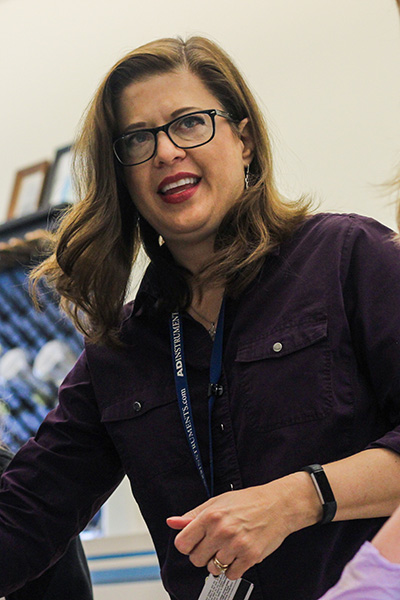
Associate Professor of Biology Denise Flaherty; photo by Angelique Herring ’19
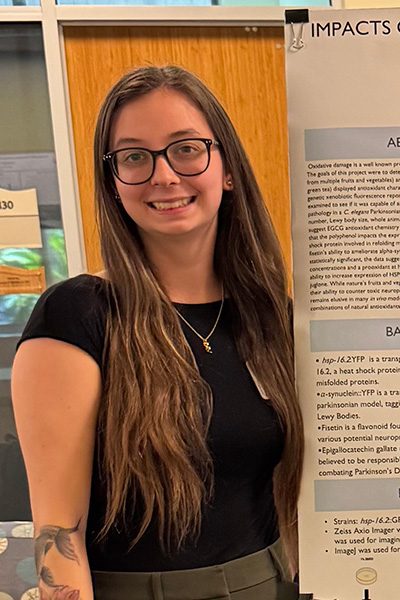
Madi shows off her work at the Eckerd College Research Symposium in March.
“Obviously everyone’s journey is different, but it gave me the opportunity to get a better picture for myself of: ‘Okay, what could my life look like if I decided to do this?’”
Both Ekaterina and Alyssa are also alumnae of the Eckerd Mass Gen internship program. Ekaterina matched with the institute as well, and Alyssa will finish her Master of Science in public health and epidemiology at Emory University before heading to Sarah Lawrence College in Yonkers, New York.
“Ideally, I’d want to do clinical research or [use my] data analyst skills,” Alyssa says.
“I’ve learned a lot of statistical programming skills, and I really enjoy that part of what I’ve been doing, and that’s kind of what I’ve dedicated my past two years of my life doing with my epidemiologic methods, so I’d like to kind of combine those two into a position.”
She had hoped to get matched with Sarah Lawrence because of the specialization of its program.
“They have more of a psychosocial focus,” Alyssa explains. “They have an Introduction to Disabilities course. So I feel like it’s a very well-rounded program.”
The process to be admitted to a genetic counseling program is similar to medical residency in that the qualified candidates rank their choices, the institutions rank their applicants, and then an algorithm is run to determine who will be selected—based on the availability at each school. Both Madi and Alyssa credit Flaherty with guiding their careers and her outstanding mentorship with their first-round matching.
“She was my professor for Genetics and Molecular Biology and then Cases in Neuropathology, and then I also had her for our capstone class,” Alyssa recalls. “And I just really got to know her from those classes, and she was just so supportive of everything that I was going through.”
Madi also believes the whole of her Eckerd experience has prepared her for heading north this fall. “There’s a very team-based learning environment, and I think I found an appreciation for that from being here, because so much of what we do at Eckerd is collaborative,” she says.
“I wouldn’t have been anywhere near where I am now without [Dr. Flaherty], because she’s encouraged me a lot and given me a lot of opportunities. That was something that was super nice, especially coming from the background that I do. You just want somebody to see the potential in you. And I think she’s a person that’s really done that and helped me thrive off of the potential that I had when she met me.”

